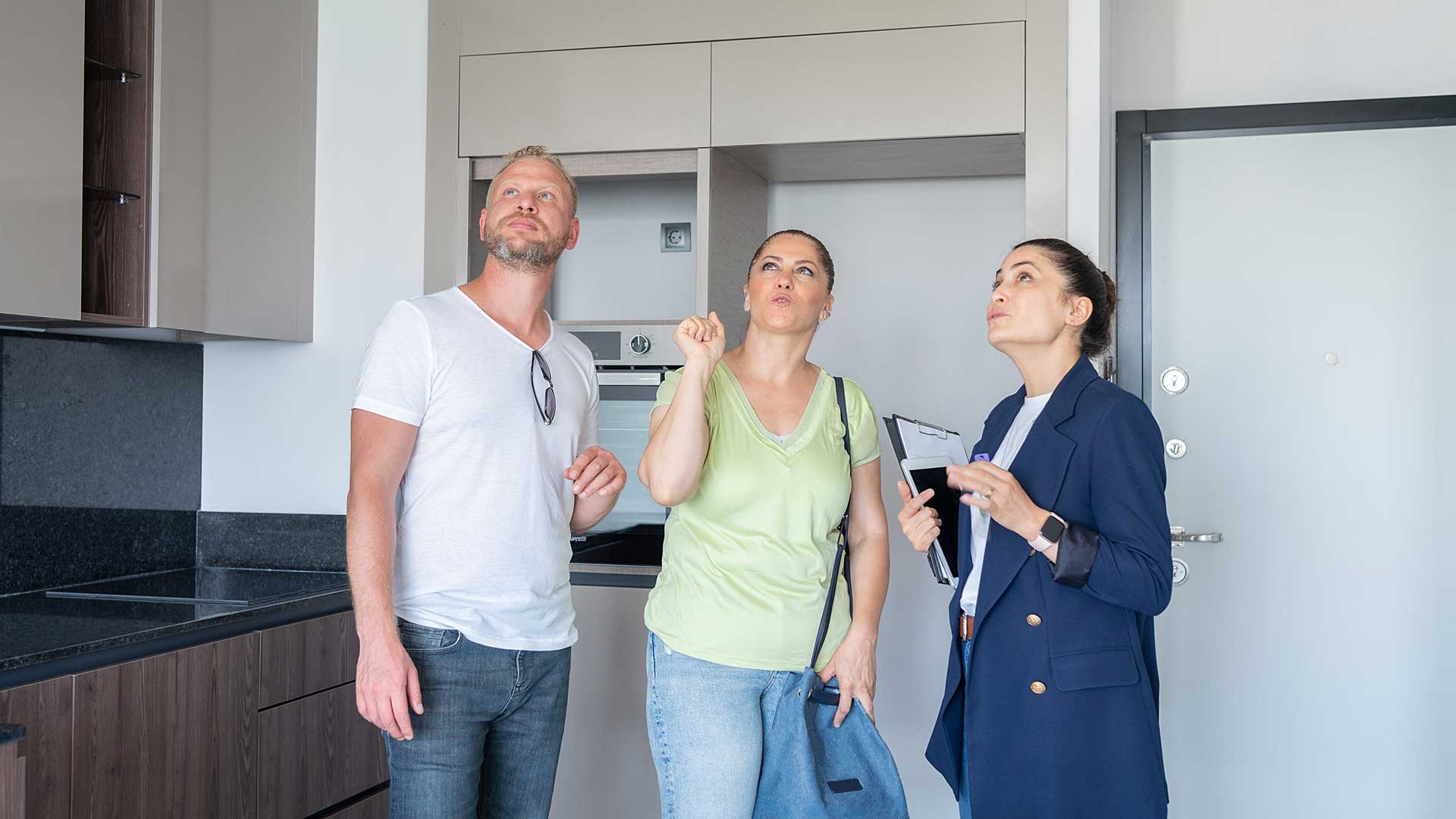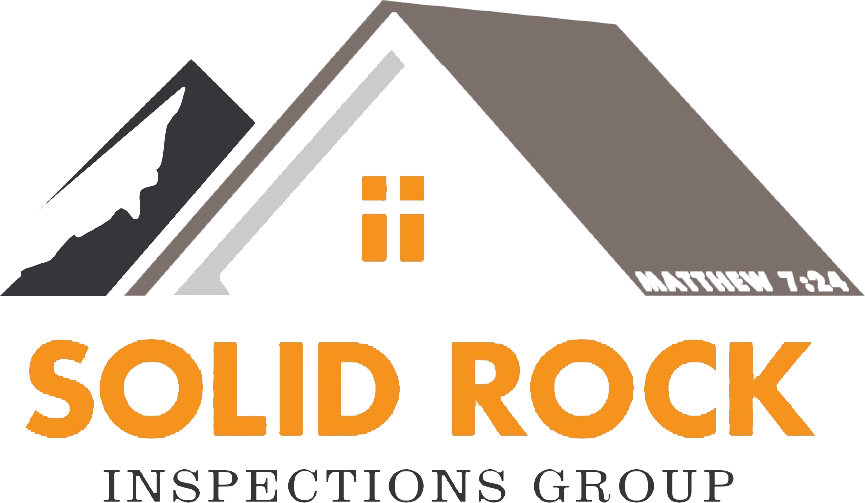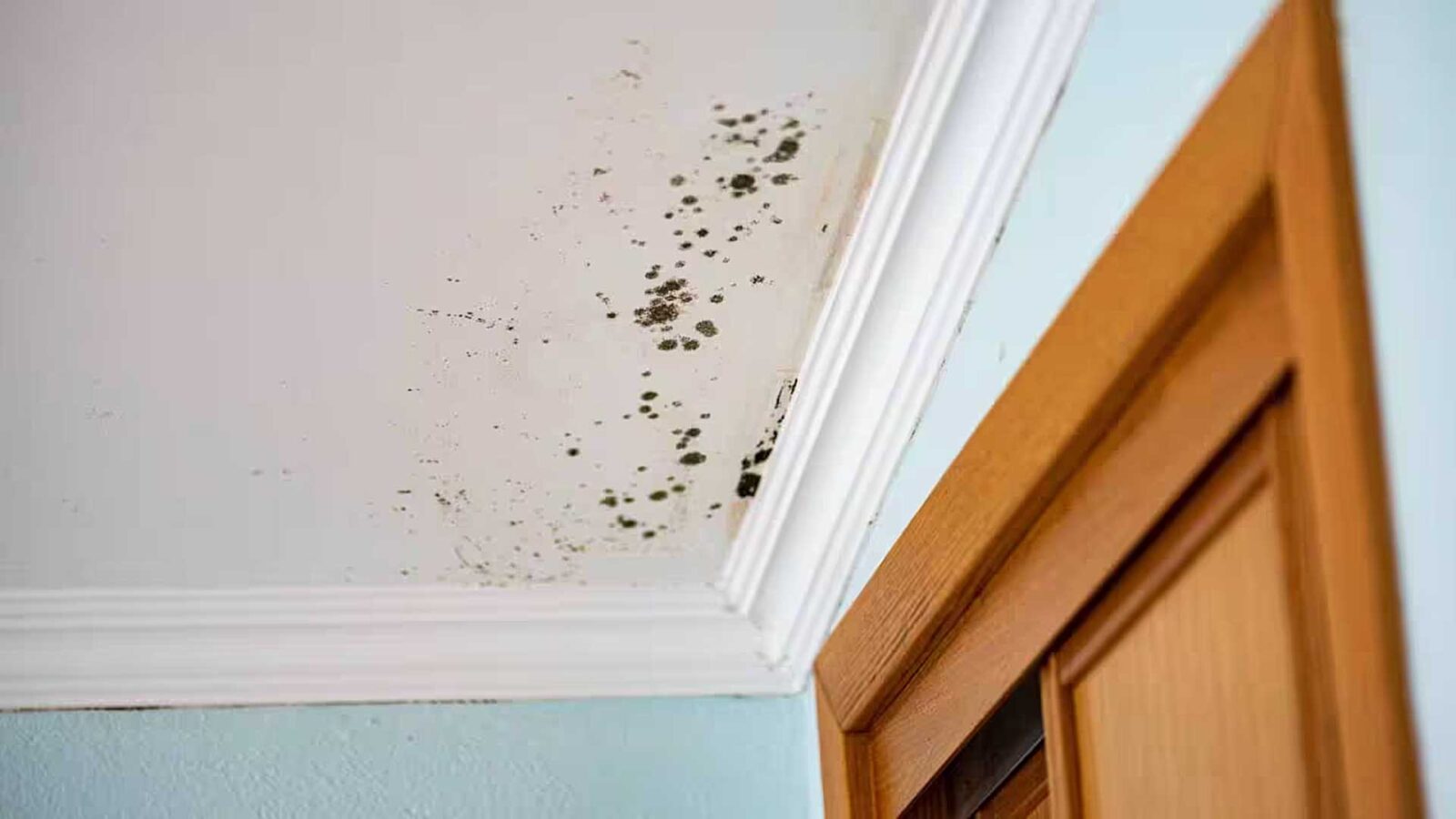As a tenant in Tampa Bay, you may have noticed spots of mold growing in your rental unit. Consequently, you may have wondered if it constitutes a code violation that needs to be addressed by your landlord. Mold can appear as spots, patches or thread-like growth on surfaces in your home. These patches tend to form in areas that are damp or wet. At the present time, mold itself is not usually a code violation. However, certain types of mold in rental properties and excessive mold growth could indicate substandard living conditions that violate Florida statutes on habitability of rental properties.
What Does Mold Look Like in Rental Homes?
Mold often appears as spots or patches and can be white, black, green, or gray. It may look powdery or slimy and can grow on surfaces like drywall, insulation, ceiling tiles and wood.
Mold needs moisture to grow. Therefore, check areas where there are plumbing leaks, water damage or excess humidity like bathrooms, kitchen and crawl spaces. Look for visible mold spots, a musty smell, or water stains on surfaces. Minor mold issues can often be cleaned up by the tenant. However, for larger infestations, it is best to hire a professional property inspection company to test for mold.
Under Florida Statute 83.51, landlords must maintain the premises in a “fit and habitable condition”. As a result, the presence of extensive mold can violate this code and require remediation. While mold itself is not explicitly cited in Florida housing codes, issues that lead to mold like plumbing leaks and water damage are required to be properly addressed. Failure to do so gives tenants the right to withhold rent or recover damages.
As a landlord, take action right away if a tenant reports signs of mold. Notably, have the property inspected and if necessary, hire a contractor to remove damaged materials, clean and dry the area, and repair any leaks or humidity issues. With prompt remediation and the proper maintenance, mold issues in rental homes can be resolved to provide tenants a safe and habitable living environment.
Florida Laws on Mold in Rental Properties
Tenants have certain rights when it comes to the condition of their rental property. As can be seen, one of the issues that may arise is the presence of mold, which can pose health hazards if left unchecked. Under Florida law, the presence of mold in rental units may be considered a violation of building codes regarding habitability and safety.
Florida Statutes on Mold
According to the Florida Statutes, landlords must maintain rental properties in a habitable condition. This includes ensuring the unit is free from pollutants and contaminants that jeopardize the health, safety or welfare of tenants. The presence of extensive mold growth would likely constitute a health hazard.
The Florida Building Code also requires that surfaces in rental units, such as ceilings and walls, remain in good repair. They should be free from dampness or deterioration. Therefore, visible mold spots or water damage on surfaces could indicate a violation.
Responsibility for Mold Removal and Remediation
If a tenant notifies the landlord about mold issues, the landlord is generally responsible for properly removing the mold and remediating any associated water damage or leaks. The landlord must hire licensed contractors to conduct mold removal and make necessary repairs to fix the source of moisture that led to the mold growth.
The presence of mold in rental properties in Florida may constitute a health hazard and code violation, requiring landlords to take action. As a tenant, you have the right to safe, habitable living conditions. If you spot signs of mold in your unit, notify your landlord in writing and request proper mold removal and remediation. Your health and safety should be a top priority.
Is Mold Considered a Code Violation in Tampa Bay Rentals?
In Tampa Bay, Florida, the presence of mold in rental properties may be considered a violation of housing codes and habitability laws. According to Florida Statutes Chapter 83, landlords must provide and maintain premises in a fit and habitable condition. The growth of mold, a type of fungus, can damage the property and pose health hazards to tenants.
Mold often appears as spots or patches and comes in a variety of colors like white, gray, brown, black, yellow, and green. It grows on surfaces that are frequently damp or wet. The most common causes of excess moisture that can lead to mold growth in rentals include:
- Roof leaks
- Plumbing leaks or overflow
- Improper ventilation leading to condensation buildup
- Flooding or water damage that is not properly dried and remediated
Florida laws require landlords to promptly repair issues like leaks or water damage that can cause mold infestation. Ultimately, if a tenant notifies the landlord about the presence of mold or conditions that are conducive to mold growth, the landlord must take appropriate action to inspect and remediate the problem. Failure to do so may be considered a violation of housing codes and habitability laws.
Tenants who discover mold in their rental unit should notify their landlord in writing, keep records of communication and consider contacting local health or housing authorities if the problem is not addressed. While small areas of mold may be cleaned and removed by the tenant, large-scale mold contamination should be inspected by a certified mold testing company like Solid Rock Inspections Group. Once the presence of mold is determined, clean up can be handled by a professional remediation company to properly eliminate health risks and ensure it does not return.

What Can Renters Do About Mold In Rental Properties?
Renters have certain rights and options for recourse. According to Florida law, the presence of mold can be considered a violation of warranty of habitability. Obviously, this means your landlord is obligated to properly maintain the rental unit to ensure it remains livable.
Notify Your Landlord
The first step is to notify your landlord in writing about the mold problem. Provide details about the location and extent of the mold, and request that remediation and repairs be made promptly. According to Florida Statute 83.51, the landlord must make repairs to correct health and safety issues. Mold is an issue that can pose health risks if left untreated.
Withhold Rent
If your landlord fails to take action after receiving written notice, you may exercise your right to withhold rent payments. However, you must place the rent money in a separate escrow account, not spend it. In effect, the landlord can take you to court to recover the rent. However, you can demonstrate you acted properly in withholding payment due to unaddressed health hazards. As a result, withholding rent often prompts the landlord to make repairs quickly.
Report To Code Enforcement
As a last resort, you may need to report the mold issue to your local code enforcement office and health department. Furthermore, they can inspect the property and issue the landlord citations and fines until the mold is properly cleaned. Keep in mind, code enforcement may also declare the unit "unfit for human habitation" until repairs are made.
Terminate The Lease
If your landlord still does not take action and living conditions become unbearable, you may need to consider breaking your lease. In Florida, the presence of mold and the landlord's failure to repair serious health hazards can be grounds for lease termination without penalty. You may want to consult with an attorney to ensure you follow proper procedures.
How to Test for Mold in a Florida Rental Home
To test for mold in your Florida rental home, look for visible signs like spots, stains, or furry growth on surfaces. Mold often appears black, white, green, or gray. It may smell musty or earthy. Check areas that tend to be damp or have water damage like bathrooms, kitchens, crawl spaces and around plumbing fixtures or your air conditioning unit.
If you see or smell mold, it’s best to test to determine the amount and type. You can buy DIY mold testing kits to check the level of mold spores in the air. Kits will include instructions for collecting air samples to send to a lab for analysis. They can identify if you have dangerous types like Stachybotrys chartarum or Aspergillus fumigatus.
You should also consider professional home inspections for large infestations. Licensed inspectors like Solid Rock Inspections Group use tools like moisture meters, boroscopes, and air sampling pumps to fully assess the situation. An inspection report, along with the DIY test results, can provide evidence for your landlord to make necessary repairs to eliminate the mold and ensure your unit is habitable as required by Florida law.
Conclusion
As a tenant in Tampa Bay, you should be aware of your rights regarding mold issues in rental properties. Some mold is considered normal wear and tear. However, extensive mold caused by poor maintenance or structural issues should not be tolerated. Check your lease and local ordinances to understand the responsibilities of both tenants and landlords. If you spot mold in your unit, report it to your landlord immediately in writing and take photos as evidence. If the issue is not addressed properly within a reasonable timeframe, you may need to get local authorities like code enforcement involved. Your health and safety should be the top priority. Make sure any mold problems are remedied completely before dropping the issue.
Should you need a mold test to confirm the presence of mold in a rental property, Solid Rock Inspections Group can help. Call us today to schedule an inspection at (727) 386-8627 or contact us on our website here. We look forward to serving you.

